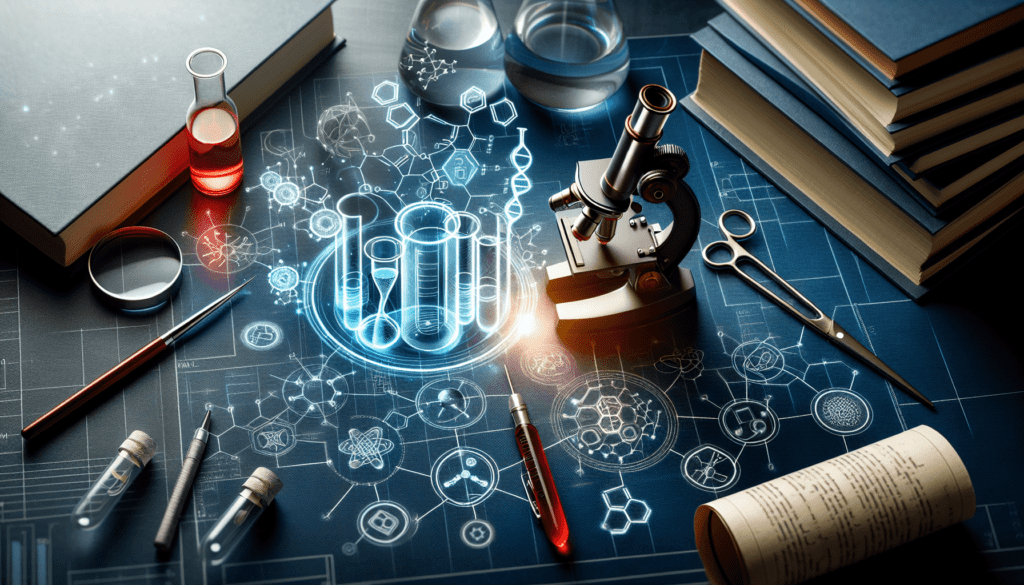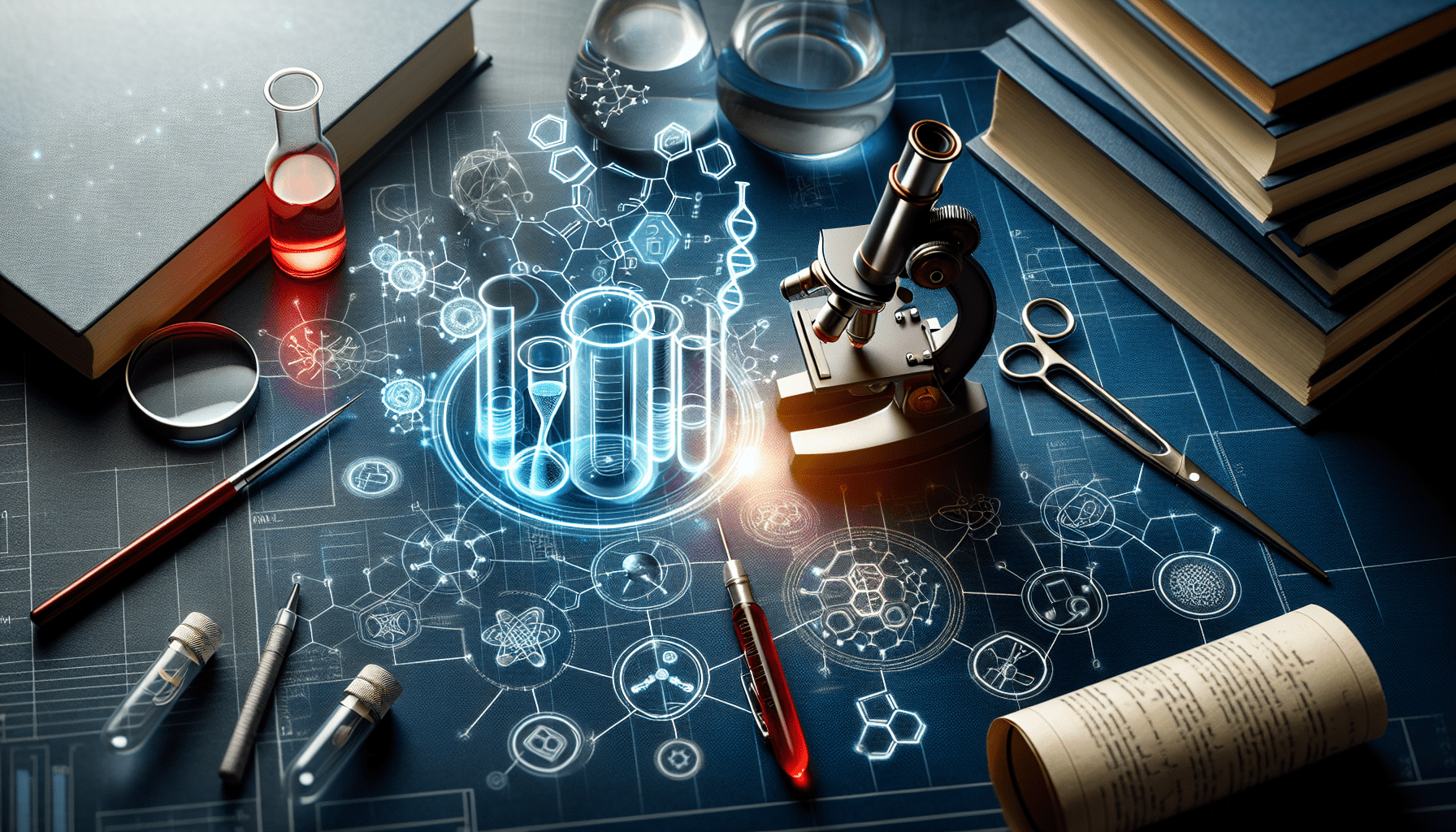A Bachelor Degree in Applied Science is a specialized undergraduate program that combines practical skills with theoretical knowledge, offering students a unique opportunity to develop expertise in solving real-world problems. By focusing on the practical application of scientific principles, this degree equips graduates with the skills necessary to excel in a wide range of industry sectors such as engineering, healthcare, technology, and environmental science. Through a comprehensive curriculum, hands-on laboratory experiences, and industry internships, students gain a solid foundation in scientific theories and methodologies, enabling them to make meaningful contributions to their chosen field of study. Embarking on a Bachelor Degree in Applied Science opens doors to exciting career opportunities, where graduates can apply their knowledge and skills to address complex challenges and drive innovation in today’s rapidly evolving world.

Definition of a Bachelor Degree in Applied Science
Overview
A Bachelor Degree in Applied Science is an undergraduate degree that focuses on the practical application of scientific principles and concepts. It combines both theoretical knowledge and hands-on skills to prepare students for careers in various industries such as technology, health sciences, and business. Unlike a traditional Bachelor of Science degree, which usually emphasizes theoretical knowledge and research, a Bachelor Degree in Applied Science has a more practical approach, providing students with the necessary skills and knowledge to succeed in their chosen field.
Focus Areas
A Bachelor Degree in Applied Science offers a diverse range of focus areas, allowing students to specialize in their area of interest. Some common focus areas include technology and engineering, health sciences, and business and management. Depending on their chosen focus area, students will have the opportunity to explore specific courses and gain in-depth knowledge and skills related to their field of study.
Benefits of Pursuing a Bachelor Degree in Applied Science
Practical Skills and Knowledge
One of the major benefits of pursuing a Bachelor Degree in Applied Science is the acquisition of practical skills and knowledge that can be directly applied in the real-world setting. Unlike purely theoretical degrees, such as a Bachelor of Arts, a Bachelor Degree in Applied Science equips students with hands-on experience and problem-solving abilities, making them highly employable in their chosen field.
Career Opportunities
With a Bachelor Degree in Applied Science, you open yourself up to a wide range of career opportunities. Depending on your specialization, you can pursue a career as an applied scientist, working on innovative projects to solve real-world problems. Alternatively, you can explore research and development roles, where you contribute to the advancement of scientific knowledge. Furthermore, management roles are also possible, where you can utilize your knowledge and skills to lead teams and drive the application of scientific principles in various industries.
Higher Earning Potential
Another advantage of pursuing a Bachelor Degree in Applied Science is the potential for higher earning. As a graduate with practical skills and knowledge, you are highly sought after in the job market. This demand typically leads to higher salaries and better job prospects compared to individuals with degrees in more general fields. Furthermore, as you accumulate experience and expertise, your earning potential is likely to increase further.
Curriculum and Courses
Core Courses
The curriculum of a Bachelor Degree in Applied Science is carefully designed to provide a solid foundation in scientific principles and their practical application. Core courses usually include subjects like mathematics, physics, chemistry, and biology, which form the basis for understanding various scientific phenomena. These courses are complemented by specialized courses in the chosen focus area, providing students with a well-rounded education in both general scientific principles and specific applied knowledge.
Elective Courses
In addition to core courses, students pursuing a Bachelor Degree in Applied Science have the flexibility to choose from a variety of elective courses. These courses allow students to tailor their education based on their specific interests and career goals. For example, a student interested in technology and engineering may choose elective courses in computer programming or electrical systems, while a student focused on health sciences may opt for courses in anatomy or pharmaceutical sciences.
Hands-on Experience
One distinguishing feature of a Bachelor Degree in Applied Science is the emphasis on hands-on experience. Many programs include laboratory sessions, projects, and internships to provide students with practical exposure to real-world applications of scientific principles. These experiences allow students to apply the knowledge gained in the classroom to solve problems and gain valuable skills that are highly valued by employers.
Specializations and Concentrations
Technology and Engineering
A specialization in technology and engineering within the field of applied science equips students with the skills necessary to design, troubleshoot, and maintain technological systems. This specialization may cover areas such as computer science, software engineering, electrical engineering, or mechanical engineering. Graduates in this field often find employment in industries such as telecommunications, software development, manufacturing, and automotive engineering.
Health Sciences
A specialization in health sciences prepares students for careers in various healthcare settings. This concentration may cover subjects such as anatomy, physiology, pharmacology, and medical technology. Graduates can pursue careers as medical laboratory technologists, radiologic technologists, or pharmaceutical sales representatives, among others. There is a growing demand for professionals in the health sciences field, making this specialization a viable choice for those interested in the medical field.
Business and Management
For students interested in the intersection of science and business, a specialization in business and management within the field of applied science can be advantageous. This concentration may include courses in business administration, entrepreneurship, marketing, and project management. Graduates with this specialization can find employment in a wide range of industries, applying their knowledge of scientific principles to make informed business decisions and drive innovation.

Entry Requirements
High School Diploma or Equivalent
To pursue a Bachelor Degree in Applied Science, students generally need a high school diploma or an equivalent qualification. This prerequisite ensures that students have a solid educational foundation before entering into a more specialized scientific program. It also signifies that students have the necessary skills to succeed in an undergraduate program.
Pre-Requisite Courses
Some programs may require pre-requisite courses related to mathematics or science to ensure that incoming students have a basic understanding of key concepts. These pre-requisite courses help bridge any gaps in knowledge and ensure that students are prepared for the more advanced coursework within the Bachelor Degree in Applied Science program.
Admission Tests
In some cases, universities or colleges may require students to take admission tests, such as the SAT or ACT, to assess their readiness for the program. These tests measure a student’s aptitude in different areas and provide institutions with valuable information to evaluate candidates for admission.
Duration of the Program
Typical Length
The duration of a Bachelor Degree in Applied Science program typically ranges from three to four years, depending on the specific university or college and the chosen focus area. This timeframe includes the required coursework, internships, and any additional hands-on experiences that may be part of the program. Students generally complete a specified number of credits to satisfy the requirements for graduation.
Accelerated Programs
Some universities or colleges offer accelerated programs, allowing students to complete their Bachelor Degree in Applied Science in a shorter timeframe. These programs often involve a more intensive course load or a structured schedule that enables students to graduate sooner. Accelerated programs can be a great option for individuals who wish to enter the job market quickly or pursue further education at an advanced level.
Career Options
Applied Scientist
With a Bachelor Degree in Applied Science, one of the most obvious career paths is that of an applied scientist. Applied scientists work on practical applications of scientific knowledge to solve real-world problems. They are involved in research, development, and testing, applying their scientific expertise to improve processes, products, or technologies. Applied scientists can find employment in various industries, including healthcare, technology, manufacturing, and environmental sciences.
Research and Development
Another career option with a Bachelor Degree in Applied Science is a role in research and development. In this capacity, graduates contribute to the advancement of scientific knowledge and the development of innovative solutions to complex problems. Research and development professionals work in collaboration with multidisciplinary teams, conducting experiments, analyzing data, and developing new concepts or products. They play a crucial role in driving scientific progress and innovation across different industries.
Management Roles
Graduates with a Bachelor Degree in Applied Science also have the potential to pursue management roles within their chosen field. With their strong scientific background and practical experience, they can lead teams and departments, overseeing the application of scientific principles to achieve organizational goals. Management roles may involve responsibilities like project management, strategic planning, budgeting, and resource allocation. These positions offer the opportunity to combine scientific knowledge with leadership skills, making a significant impact on both scientific advancements and business success.
Further Education Opportunities
Master’s Degree in Applied Science
For individuals looking to further their education and gain specialized knowledge in their field, pursuing a Master’s Degree in Applied Science is an excellent option. A Master’s degree offers a more in-depth exploration of a specific area within applied science and can open doors to advanced career opportunities. The coursework and research involved in a Master’s program enable students to develop a deeper understanding of their chosen field and contribute to the advancement of scientific knowledge.
Doctorate in Applied Science
For those seeking the highest level of education in the field of applied science, a Doctorate in Applied Science is the pinnacle of academic achievement. A doctoral program focuses on research and independent study, allowing students to make significant contributions to their field through original research. Graduates with a doctorate degree often pursue careers in academia, research institutions, or become industry leaders in their respective areas of expertise.
Choosing the Right University or College
Accreditation
When choosing a university or college for a Bachelor Degree in Applied Science, it is essential to ensure that the institution is accredited. Accreditation ensures that the program meets the required educational standards and that the degree is recognized by employers and other educational institutions. Accreditation provides assurance of the quality of education and increases the credibility and value of the degree.
Faculty and Resources
Another factor to consider when selecting a university or college is the quality of the faculty and available resources. Look for institutions that have experienced professors with both academic and industry experience. Additionally, consider the availability of modern laboratories, research facilities, and technology resources, as these will enhance your learning experience and enable you to gain practical skills.
Internship and Job Placement Support
Internship and job placement support can make a significant difference in your career prospects after graduation. Research whether the university or college has partnerships with industry organizations or offers internship programs that provide opportunities for real-world experience. Additionally, inquire about the career services offered by the institution, such as job placement assistance or networking events. These resources can give you a competitive edge in the job market and help you establish valuable connections within your chosen industry.
Conclusion
A Bachelor Degree in Applied Science offers a unique blend of theoretical knowledge and practical skills. It prepares students for a wide range of rewarding careers in various industries, including technology, health sciences, and business. With a focus on hands-on experience and problem-solving, graduates of this program are highly sought after by employers for their ability to apply scientific principles to real-world challenges. Whether you choose to specialize in technology and engineering, health sciences, or business and management, a Bachelor Degree in Applied Science provides a solid foundation for a successful and fulfilling career. Consider the various options available, weigh the benefits, and choose the right institution to embark on your journey to becoming an applied science professional.

